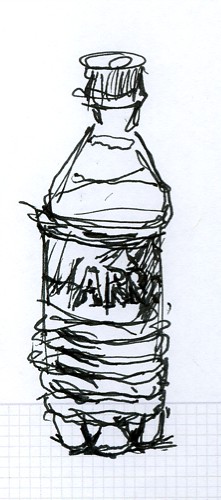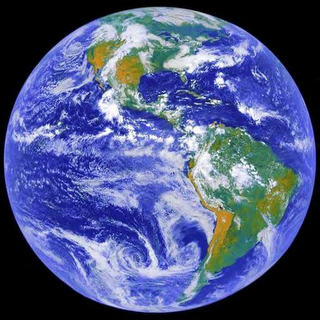The symbolism of water has always been meaningful to me, and the topic of water has always been important. Water has been weighing heavy on my mind lately, and the
fires blazing in California only heighten my sense of reverence and concern.
With special reverence every
March.
Now my concern...
The Drinkable Water Supply is Shrinking
Albert Szent-Gyorgyi, a Hungarian Nobel Prize winner has said:
"Water is life's matter and matrix, mother and medium. There is no life without water."
Well, if that is the case, then "Life" is in trouble. Go ahead and make that a capital "T", because
we are running out right quick. Four big reasons:
- Pollution
- Rising global temperatures
- Population growth
- Poor resource management
Locally, the California Department of Water Resources predicts that by 2020, that's 13 years folks, the state will face a freshwater shortfall nearly as great as, "the amount that all of its cities and town together are consuming today."
But across the country, in places like super wet Seattle, as well as arid Tucson, demand is greater than supply. I looked at a
global water shortage map to get a sense of the big picture, and the countries that are experiencing physical or economic water scarcity make up, essentially, the entire Southern Hemisphere, with extreme shortage near the equator, and about 3 tiny exceptions in South America. Worldwide, the water crisis is most extreme in:
- Mexico
- China
- Africa
- The Middle East
In Northern China, the water level is dropping 1 meter per year due to over-pumping. In India, where more than 1 billion of Earth's 6 billion people reside, aquifers are being overpumped, and soil is becoming saltier. The
frightening thing is that irrigation, the greatest source of water consumption, was responsible for increasing food production in India that now supports its still expanding population.
Some Facts- Water demand is doubling every 20 years.
- Right now, 1.3 billion people don't have access to clean water.
- Right now, 2.5 billion people (40% of Earth's pop.) don't have access to safe sewer and sanitation.
- Right now, in Africa, 5 million people die each year for lack of safe drinking water.
- 80 Countries have have water shortages that threaten health.
- The biggest drain on our water resources is agriculture, which consumes 70% of worldwide water use.
- Neoliberal values contribute to our water problems by letting corporations privatized what once belonged to the public.
- The population is expected to grow from 6 billion to 9 billion by 2050, according to the UN.
- In fewer than 20 years the demand for fresh water will exceed capacity by over 50%.
- The World Health Organization estimates that at any one time, up to half of the human population suffers from one of 6 main illnesses associated with water shortage (diarrhea, schistosomiasis, trachoma, ascaris, guinea worm, and hookworm).
Some Solutions- Conserving water on a global scale
- Curbing pollution
- Slowing population growth
- Managing supply and demand better
- Repairing ageing water infrastructure
- Developing desalination technology
Using a market approach to water management is held as both a
source and
solution to the problem. Lacking neoliberal credentials, perspective, and values, I consider turning control of water management over to corporations, who exist for the sole purpose of making a profit, and whose rights to do so
may override my own rights to healthy living conditions, as fueling and not solving the problem. (Sort of like the Santa Ana winds during a fire...) (More on "corporate personhood"
here.)
Australia, which is facing severe water shortages in cities like Perth, which has had a 21% decline in rainfall in the last decade, is
increasingly turning to desalination, causing some to predict that half of Perth's water may come from desalination technology in the coming 30 years. But, desalination is costly, both to initiate and operate. And some hold the United States, which once led the world in such research, accountable for
abdicating the role of leading research and development to Saudi Arabia, Israel, and Japan. Nearly two-thirds (60%) of the roughly 11,000 desalination plants in existence are located in the Middle East.
Disaster ScenariosLike population density and high agricultural demands, reduced water supply has a synergistic effect on the damage caused by other disasters, as demonstrated by the
Indian Ocean tsunami and Kobe earthquake, and, as I fear, the current wildfire storm raging in Southern California. Should California experience an earthquake large enough to break water lines, densely populated areas are likely to experience widespread panic, as well as high rates of illness and death due to lack of access to fresh water. (And by the way, if you haven't seen Roman Polanski's
Chinatown, see it. Great film about Los Angeles land and water conspiracies.)
The FutureA recent study
reported by the Guardian has given us a glimpse into our possible future. Analysts have projected widespread conflict by 2015 (just 13 years) due to water shortage, including:
- Civil unrest
- Mass migration
- Economic collapse
Based on these projections, three visions of the future were concluded:
- "Misery and shortages in the Megacities and drought in Africa"
- "China leads recycling rush as world moves to a new hydro economy"
- "Water is the means of social control as floods and disease devastate world"
And in California, the desert still pretends to be an oasis...
Here beneath the moon tonight
So pale and fragile
Is that shining in the distance I see
Real or just imagined?
Imagined mirages of agua
What are you going to do about it?(Part I of a Series.)TAGS:
Water Supply,
Water,
Shortage,
Environmentalism,
Natural Resources,
Conservation
 Nearly 20 years later, Alaska is still feeling the effects of the Exxon Valdez oil spill.
Nearly 20 years later, Alaska is still feeling the effects of the Exxon Valdez oil spill.



